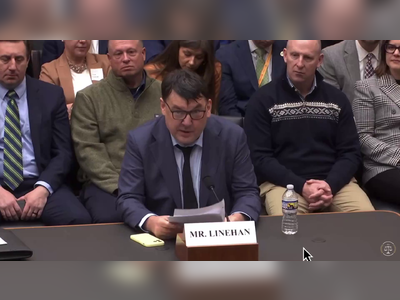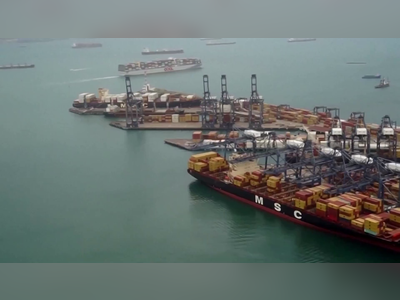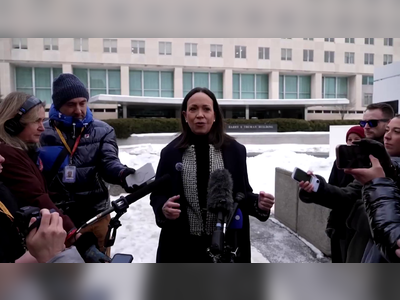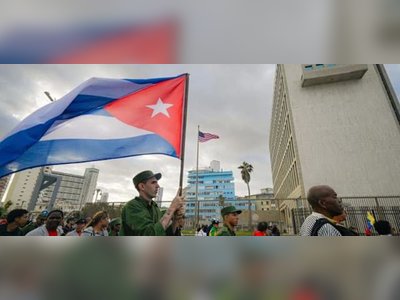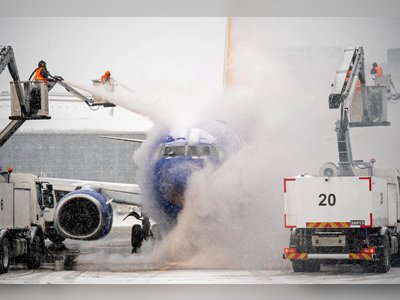Torture Allegations in Nicaragua: 229 Cases Documented Since 2018 Protests
A human rights report uncovers startling methods of suppression under Ortega's regime, citing systemic torture designed to instill fear.
In a sobering revelation, the Nicaragua Nunca Más Collective, an exiled human rights organization based in Costa Rica, reported on Tuesday that at least 229 individuals have fallen victim to torture following their detention in Nicaragua, coinciding with protests against the government of President Daniel Ortega since 2018.
This stark figure underscores a persistent pattern of repression that has trailed the authoritarian regime amid escalating international condemnation.
The detailed report catalogs over 40 distinct methods of torture allegedly employed within the country, painting a chilling picture of state-sponsored brutality.
Documented techniques range from beatings and asphyxiation to electric shocks, burns, mock executions, and the forceful extraction of nails or teeth.
The victims are predominantly male, with 183 men compared to 46 women among the survivors who provided testimonies.
The protests ignited in 2018 were met with a swift and heavy-handed crackdown, establishing arbitrary detentions as a mechanism to instill fear and suppress dissent.
These demonstrations, sparked by controversial social security reforms, quickly escalated into a broader backlash against Ortega's increasingly oppressive governance.
Official figures from the United Nations indicate that more than 300 lives were lost within the furious initial months alone.
Denouncing the protests as a coup attempt allegedly orchestrated by foreign powers, mainly the United States, the Ortega administration has staunchly defended its actions, dismissing allegations and international criticisms.
However, the Collective's findings reinforce accusations of grave human rights abuses, highlighting over 2,000 instances of arbitrary detentions, nearly 40% of which involved paramilitary forces functioning as an unacknowledged auxiliary arm of government repression.
Since February 2023, the government's draconian measures have extended to revoking the citizenship of approximately 450 Nicaraguans, including notable political, business, and intellectual figures.
This move, reflecting a sweeping legislative amendment, brands these individuals as traitors, effectively severing their ties to the nation and compounding what the NGO describes as 'civil death'.
The combination of forcible exile and statelessness represents the latest phase in the Nicaraguan government's campaign to cement its control through terror and disenfranchisement.
The international community has been urged to respond decisively, as the systemic nature of these abuses suggests they may rise to the level of crimes against humanity, demanding accountability and justice.
This stark figure underscores a persistent pattern of repression that has trailed the authoritarian regime amid escalating international condemnation.
The detailed report catalogs over 40 distinct methods of torture allegedly employed within the country, painting a chilling picture of state-sponsored brutality.
Documented techniques range from beatings and asphyxiation to electric shocks, burns, mock executions, and the forceful extraction of nails or teeth.
The victims are predominantly male, with 183 men compared to 46 women among the survivors who provided testimonies.
The protests ignited in 2018 were met with a swift and heavy-handed crackdown, establishing arbitrary detentions as a mechanism to instill fear and suppress dissent.
These demonstrations, sparked by controversial social security reforms, quickly escalated into a broader backlash against Ortega's increasingly oppressive governance.
Official figures from the United Nations indicate that more than 300 lives were lost within the furious initial months alone.
Denouncing the protests as a coup attempt allegedly orchestrated by foreign powers, mainly the United States, the Ortega administration has staunchly defended its actions, dismissing allegations and international criticisms.
However, the Collective's findings reinforce accusations of grave human rights abuses, highlighting over 2,000 instances of arbitrary detentions, nearly 40% of which involved paramilitary forces functioning as an unacknowledged auxiliary arm of government repression.
Since February 2023, the government's draconian measures have extended to revoking the citizenship of approximately 450 Nicaraguans, including notable political, business, and intellectual figures.
This move, reflecting a sweeping legislative amendment, brands these individuals as traitors, effectively severing their ties to the nation and compounding what the NGO describes as 'civil death'.
The combination of forcible exile and statelessness represents the latest phase in the Nicaraguan government's campaign to cement its control through terror and disenfranchisement.
The international community has been urged to respond decisively, as the systemic nature of these abuses suggests they may rise to the level of crimes against humanity, demanding accountability and justice.
